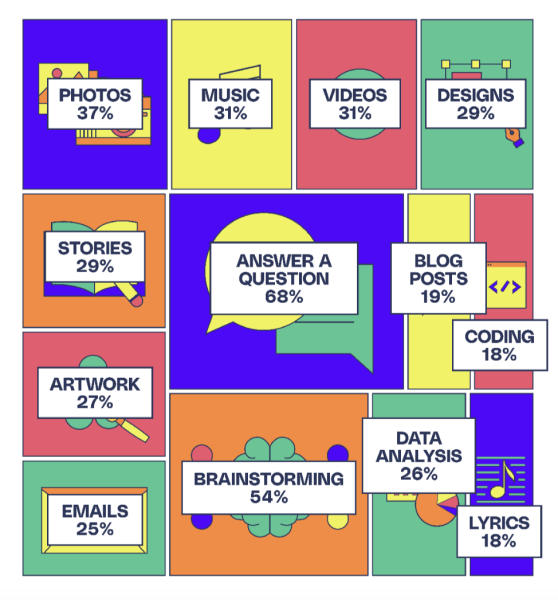Spotify’s CEO says that he is open to continuing to allow AI in music on the music streaming platform – with caveats.
Daniel Ek, the mind behind Spotify, recently talked about the use of AI for music with BBC’s tech editor, Zoe Kleinman. The chat helped clarify the challenges and possibilities of music made by AI, a major topic in the art world.
Ek explained that AI can make music better, but it shouldn’t be used to impersonate artists without their permission. He thinks people will talk about AI and music for “many, many years,” highlighting the challenges and opportunities it brings.
Earlier this year, Spotify made headlines when a song with AI-generated voices impersonating well-known artists Drake and The Weeknd was removed. This incident highlighted the need for talks about using AI the right way.
Striking a Chord: Balancing Innovation and Ethics
Using AI in music has truly transformed the industry, introducing new tools and creative options. AI can analyze music patterns, create melodies, and even mimic the style of specific artists. However, it’s also crucial to consider the right and wrong ways to use this technology. A balanced approach to AI usage is necessary, taking the ethical aspects into account.
The Spotify founder categorized the use of AI in music into three “buckets”:
- Acceptable tools that make music better, such as auto-tune;
- Unacceptable tools that mimic artists;
- And a middle ground where AI music is shaped by real artists but doesn’t straight-up copy them.
Spotify is being careful, allowing certain forms of AI but not letting its stuff be used to teach AI models to make music. The platform watches for people trying to trick the system, as seen when it removed many songs that used bots to fake play counts.
AI in Music: The Ethical and Legal Challenges
The integration of AI and music, while innovative and transformative, raises several ethical and legal challenges that the industry must address.
A major concern is copying other people’s work. AI can analyze and imitate music styles, which could result in potential violations of intellectual property rights by creating music that sounds like it was made by actual artists. This raises questions about who truly owns the music and highlights copyright issues.
Intellectual Property Dilemmas
While Spotify navigates the integration of AI and music, the broader entertainment industry faces significant ethical and legal challenges.
Intellectual property theft in the realm of AI is a growing concern, with the overlap of AI and intellectual property rights sparking significant discussion. Notable instances such as Zoom’s policy change and lawsuits against tech giants OpenAI and Meta by authors like Sarah Silverman have sparked discussions on the unauthorized use of works to train AI models.
Public Opinion and the Call for Regulation
A 2,000-person poll conducted by The Verge sheds light on the mixed public opinion on AI in art and music.
The survey shows that 70% of respondents believe artists deserve compensation if an AI mimics their style – with 43% believing that companies should ban copying artists and 44% having asked AI to copy an artist’s style.
Furthermore, 76% of respondents think there should be laws governing AI development, and 78% believe that AI-created digital content needs to clearly state that it was created with AI.
AI in Music Creation
According to the same survey by The Verge, the most popular use cases for generative AI were answering questions (68% of respondents), brainstorming (54%), generating photos (37%) – and creating music (31%). Ultimately, it appears that creative experiments were most common, rather than professional applications like coding.

Furthermore, most people thought AI made their work better – with 57% of respondents stating that AI helped their music.
This highlights the growing influence and acceptance of AI in music, aligning with Daniel Ek’s openness to allowing AI-created content on Spotify.
Balancing Creativity and Ethics
In conclusion, the journey of AI and music is filled with both promise and hurdles. Daniel Ek, the CEO of Spotify, is leading with cautious optimism, acknowledging the benefits of AI while stressing the importance of using it ethically. The issues with AI mimicking famous artists highlight the urgent need for clear rules and responsible use. The public’s views, reflected in The Verge’s survey, are in agreement, calling for honesty and regulation.
As AI continues to make waves in the music world, finding the right balance between innovation and ethics will be crucial for a harmonious future where both technology and creativity can thrive.